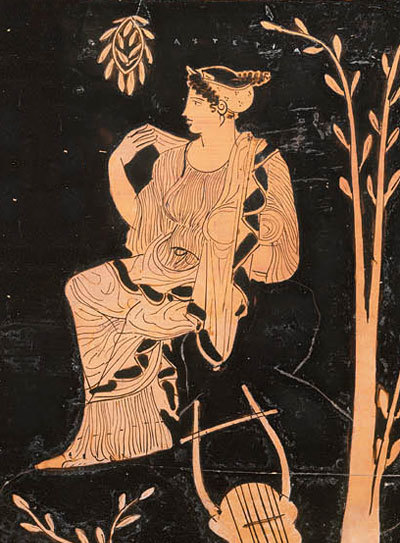Asteria
Asteria refers to a name that has been used in various contexts within mythology, astronomy, and zoology, among others. This article will focus on the primary uses of the term, providing a comprehensive overview of its significance across different fields.
Mythology[edit | edit source]
In Greek mythology, Asteria (Greek: Ἀστερία ) was a name attributed to several characters, but most notably, it referred to a Titaness, the daughter of Coeus and Phoebe and sister to Leto. Asteria was associated with falling stars and nighttime prophecies. After the Titanomachy, the war between the Titans and the Olympians, Asteria was pursued by Zeus. To escape him, she transformed herself into a quail and leaped into the sea, where she became the island of Delos or, in other versions, the island of Ortygia. This mythological background enriches the tapestry of Greek mythology, illustrating themes of power, transformation, and escape.
Astronomy[edit | edit source]
In astronomy, Asteria can refer to several celestial bodies. The name has been given to asteroids, such as 658 Asteria, discovered in the early 20th century. These celestial objects, named after figures from mythology, reflect humanity's attempt to bring order and familiarity to the vast unknowns of space. The use of mythological names in astronomy serves as a bridge between ancient cultures and modern scientific discovery, highlighting the enduring influence of these stories on human understanding of the cosmos.
Zoology[edit | edit source]
In zoology, Asteria is a genus within the family Asteriidae, encompassing various species of sea stars (commonly known as starfish). These marine invertebrates are known for their radial symmetry, regenerative abilities, and the role they play in ocean ecosystems. The naming of these creatures after a mythological figure associated with stars underscores the human tendency to find patterns and connections between terrestrial life and celestial phenomena.
Conclusion[edit | edit source]
The name Asteria encapsulates a rich tapestry of meanings and associations, from ancient myths of gods and Titans to the scientific naming of celestial bodies and marine species. It serves as a reminder of humanity's enduring fascination with the stars, the natural world, and the stories we tell to make sense of it all.
| Asteria Resources | |
|---|---|
|
|
Search WikiMD
Ad.Tired of being Overweight? Try W8MD's physician weight loss program.
Semaglutide (Ozempic / Wegovy and Tirzepatide (Mounjaro / Zepbound) available.
Advertise on WikiMD
|
WikiMD's Wellness Encyclopedia |
| Let Food Be Thy Medicine Medicine Thy Food - Hippocrates |
Translate this page: - East Asian
中文,
日本,
한국어,
South Asian
हिन्दी,
தமிழ்,
తెలుగు,
Urdu,
ಕನ್ನಡ,
Southeast Asian
Indonesian,
Vietnamese,
Thai,
မြန်မာဘာသာ,
বাংলা
European
español,
Deutsch,
français,
Greek,
português do Brasil,
polski,
română,
русский,
Nederlands,
norsk,
svenska,
suomi,
Italian
Middle Eastern & African
عربى,
Turkish,
Persian,
Hebrew,
Afrikaans,
isiZulu,
Kiswahili,
Other
Bulgarian,
Hungarian,
Czech,
Swedish,
മലയാളം,
मराठी,
ਪੰਜਾਬੀ,
ગુજરાતી,
Portuguese,
Ukrainian
Medical Disclaimer: WikiMD is not a substitute for professional medical advice. The information on WikiMD is provided as an information resource only, may be incorrect, outdated or misleading, and is not to be used or relied on for any diagnostic or treatment purposes. Please consult your health care provider before making any healthcare decisions or for guidance about a specific medical condition. WikiMD expressly disclaims responsibility, and shall have no liability, for any damages, loss, injury, or liability whatsoever suffered as a result of your reliance on the information contained in this site. By visiting this site you agree to the foregoing terms and conditions, which may from time to time be changed or supplemented by WikiMD. If you do not agree to the foregoing terms and conditions, you should not enter or use this site. See full disclaimer.
Credits:Most images are courtesy of Wikimedia commons, and templates Wikipedia, licensed under CC BY SA or similar.
Contributors: Prab R. Tumpati, MD

